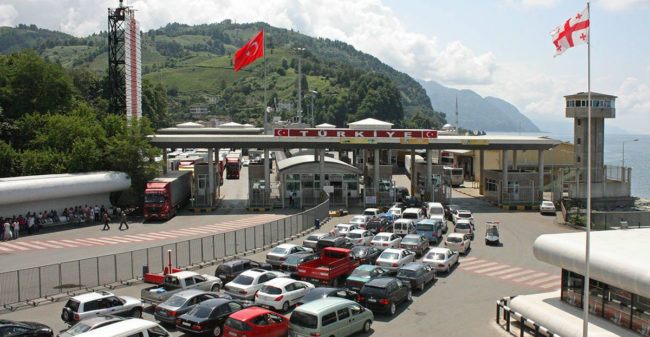

 When border guards learn that a person is Muslim at Georgia’s border checkpoints, they are stopped and face additional questions without reason, according to local rights group the Human Rights Education and Monitoring Centre (EMC). If this person is in possession of religious literature, border guards deprive them of these using threats and other methods, they continued.
When border guards learn that a person is Muslim at Georgia’s border checkpoints, they are stopped and face additional questions without reason, according to local rights group the Human Rights Education and Monitoring Centre (EMC). If this person is in possession of religious literature, border guards deprive them of these using threats and other methods, they continued.
EMC studied various incidents at several of Georgia’s border checkpoints and determined that Muslims are often discriminated against. The organisation appealed to the Public Defender of Georgia with the information.
Based on this, the Public Defender’s Office conducted their own research at Georgia’s Sarpi checkpoint, at the border with Turkey. They concluded that Muslim’s are unlawfully targeted based solely on their religion, and that their rights to freedom of movement and property are violated without any legal justification.
The Public Defender confirmed that employees of the Customs Office illegally deprived people of religious literature. They achieved this through psychological pressure, threats of fines, or asking them personal questions.
The Public Defender writes in his statement that border guards began investigating people only after learning that they are Muslims, while other people were allowed to cross the border normally. He believes that the stopping of Muslims on the border is an attempt to inhibit their religious activities.
According to EMC, border guards regularly conduct invasive searches of Muslim women.
The Public Defender recommended that the Ministry of Internal Affairs better train customs officers to implement religiously neutral control of the border.
Local rights group the Tolerance and Diversity Institute (TDI) also observed the passport control process at the Sarpi check-point, and corroborated EMC’s findings. The organisation reported that a Muslim man was stopped at the border for half an hour, while others were stopped for an average of one minute.
‘When he asked what kind of error was in his documents, the customs employees couldn’t answer’, TDI said, adding that about 30 people crossed the border without any problem while the man was waiting.









